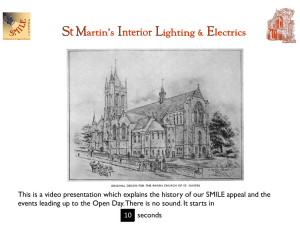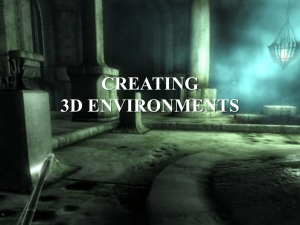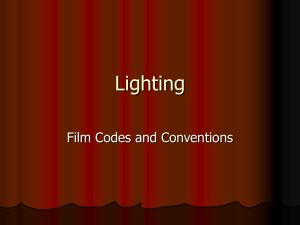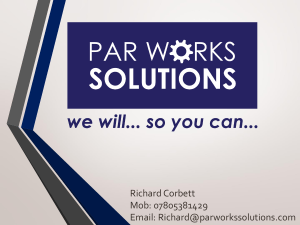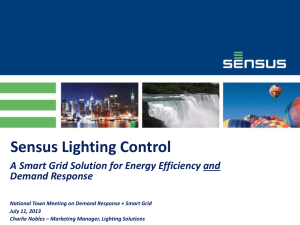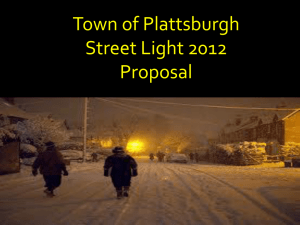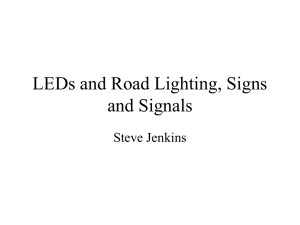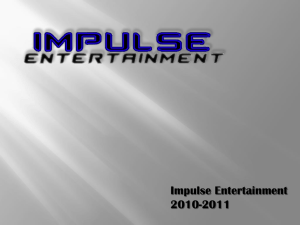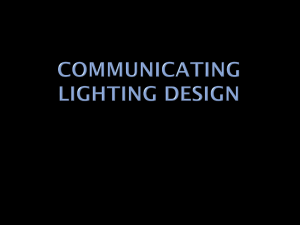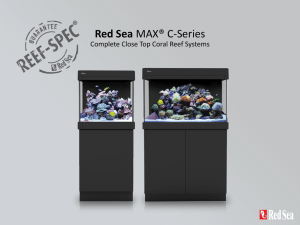Eunice Noell-Waggoner The Value of Lighting in Architecture
advertisement
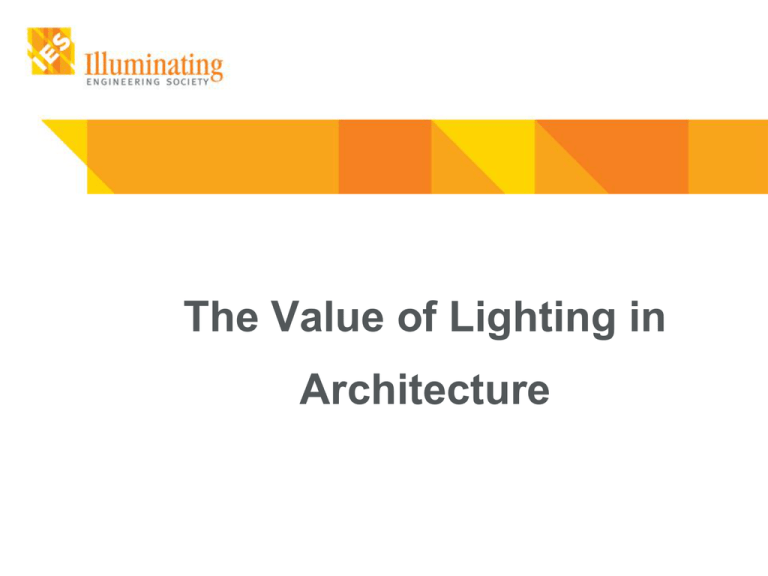
The Value of Lighting in Architecture The Value of Lighting in Architecture Light defines what we see. Quality Lighting is essential to quality of life. Institute of Peace Illumination Award winner Special Citation for Cohesive Design of Light Enhancing Architecture 2012 Lighting Design: “Glenn Heinmiller/Lam Partners” Architect: Safdie Architects Photo: Bill Fitzpatrick The Value of Lighting in Architecture Vision The more visible the task, the more efficiently, accurately and safely we perform them Photo: Eunice Noell-Waggoner The Value of Lighting in Architecture Visual Comfort • Good lighting provides sufficient light levels without glare. • Visual acuity declines with age. As individual age, their eyes generally need more light, but without glare. Photo: Eunice Noell-Waggoner The Value of Lighting in Architecture Modeling • Light and shadow are tools that lighting designers use to make faces, objects and spaces more visible or attractive. The Value of Lighting in Architecture Composition • Within spaces, patterns of light convey vital information to people, such as scale, function and way finding. • Light patterns can articulate architecture and reinforce mood and atmosphere Immaculata Church Edwin F. Guth Award for Interior Design Lighting Illumination awards 2012 Lighting Design: “Ron Neal Lighting Design” The Value of Lighting in Architecture Color • Color of light (e.g., “warm”, “neutral, or “cool”) can affect how we perceive faces, objects, and surfaces. The Value of Lighting in Architecture Health • Poor lighting (e.g. glare, flicker, extreme contrast ratios, brightness too high or low) may negatively affect work productivity and general health and well-being (eyestrain, headaches, tension). The Value of Lighting in Architecture Safety It can also fail to illuminate hazards such as corners and tables. The Value of Lighting in Architecture Energy Considerations • New Lighting technologies help reduce energy consumption. • Examples: energy efficient LEDs, lighting controls, and the use of daylighting. • Also longer life fluorescents, improved luminare optics etc. How IES benefits Architects •IES is the leading organization in developing standards and recommended practices for lighting in North America •Provides a forum for objective evaluation of quality lighting and energy efficiency. •-September 11th National Memorial- Fisher Marantz Stone, Lighting Designer IES Illumination Award- Award of Distinction 2012 Photo: Sam Fontanez IES Documents Help Architects Facilitate communication with clients and product manufacturers • Provide a common reference for defining lighting quality and quantity Apply to a wide range of lighting applications • From museums, sports arenas, theatres, roadways, commercial buildings, manufacturing and retail stores to hospitals IES Documents Help Architects Provide guidance on achieving energy efficiency and sustainability • Including Daylighting • Periodic revision cycles to remain current and relevant Establish testing procedures for manufacturers and photometric labs • Lighting products, complying with IES guidelines, provide assurance to architects and support their recommendations to clients How IES Activities Help Architects Offers continuing education classes that are recognized for credit by the AIA. Section meetings offer opportunities to learn and network.
